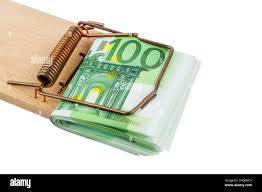The Pros and Cons of Using Credit Cards for Everyday Expenses
Credit cards are a convenient way to pay for daily expenses, from groceries to gas and utility bills. While they offer rewards and added security, they can also lead to financial pitfalls if not used responsibly. Before deciding whether to rely on credit cards for everyday purchases, it's essential to weigh the pros and cons.
Pros of Using Credit Cards for Everyday Expenses
1. Convenience and Ease of Use
One of the biggest advantages of credit cards is convenience. They eliminate the need to carry large amounts of cash and make it easier to track your spending. Most businesses accept credit cards, making them an effortless option for daily transactions like shopping, dining, and paying bills.
2. Earning Rewards and Cashback
Many credit cards offer rewards programs, allowing you to earn points, miles, or cashback on everyday purchases. If you use your card regularly and pay off the balance in full each month, you can earn significant rewards, especially on recurring expenses like groceries, gas, and travel.
Tip: Look for credit cards that align with your spending habits. Some cards offer higher rewards for specific categories, such as dining or groceries, which can maximize your benefits.
3. Improved Credit Score
Using a credit card responsibly can help build or improve your credit score. Paying your credit card bill on time and keeping your balance low relative to your credit limit (credit utilization) shows lenders that you can manage credit responsibly, which can boost your credit score over time.
4. Purchase Protection and Security
Credit cards often offer additional purchase protection, including extended warranties and fraud protection. If a fraudulent transaction occurs, you're usually not held responsible for unauthorized charges. Plus, credit cards make it easier to dispute charges for faulty or damaged goods.
5. Opportunity for Interest-Free Financing
Some credit cards offer 0% introductory APR (annual percentage rate) periods, allowing you to make large purchases and pay them off over time without accruing interest. This can be useful for spreading out payments on big-ticket items like appliances or furniture.
Cons of Using Credit Cards for Everyday Expenses
1. Risk of Overspending
Credit cards can encourage overspending, as they provide instant access to funds beyond your current income. It’s easy to fall into the trap of making impulse purchases or spending more than you can afford. This can quickly lead to credit card debt, especially if you carry a balance from month to month.
Solution:
To avoid overspending, stick to a budget and treat your credit card like cash—only charge what you know you can pay off at the end of the month.
2. High Interest Rates
Credit cards tend to have higher interest rates compared to other forms of credit, like personal loans. If you don’t pay off your balance in full each month, you’ll start accruing interest, which can make everyday purchases much more expensive in the long run.
Example:
Carrying a balance of $1,000 with a 20% interest rate could cost you hundreds of dollars in interest over time if you only make minimum payments.
3. Negative Impact on Credit Score if Mismanaged
While using credit cards responsibly can boost your credit score, mismanaging them can hurt it. Late payments, high credit utilization (using too much of your available credit), and carrying large balances can negatively affect your score and make it harder to qualify for loans or favorable interest rates in the future.
4. Fees and Penalties
Credit cards can come with a range of fees, including annual fees, late payment fees, foreign transaction fees, and over-the-limit fees. These can add up quickly and offset any rewards you earn. Additionally, missing a payment can lead to penalty interest rates, which are often much higher than the standard APR.
Tip:
Always read the fine print before choosing a credit card and be mindful of potential fees. Consider a no-annual-fee card if you don’t plan to spend enough to justify the cost.
5. Can Create Dependency
Relying on credit cards for everyday purchases can create a cycle of dependency. If you’re not careful, you may start using credit cards as a financial cushion, relying on them to cover shortfalls in your budget. This can lead to accumulating debt that becomes difficult to pay off.




No comments yet
Be the first to share your thoughts!